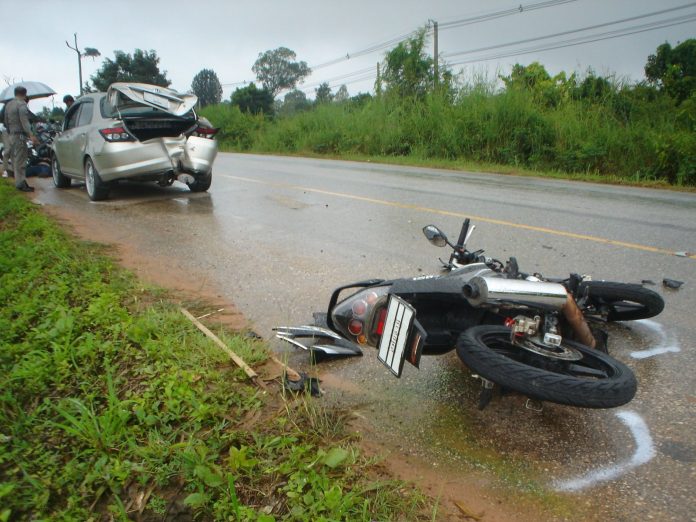Whenever a motorcycle is struck by a car or truck, it’s likely to incur the vast majority of the damage. Furthermore, since motorcyclists have far less protection against collisions than other motorists, even seemingly minor accidents are liable to result in considerable injuries. So, should you ever find yourself the victim of a motorcycle accident, it’s only natural that you’d want to receive as much compensation as possible in the timeliest possible manner. In the interest of achieving this goal, motorcyclists who have been struck by vehicles should put the following tips to good use.
Get Yourself Out of Harm’s Way
Your motorcycle may be very important to you, but no bike is worth more than your personal well-being. So, no matter how tempted you are to prioritize salvaging your bike over your own safety, make a point of fighting this urge. In the wake of an accident, you’re likely to experience a rush of adrenaline, which can impair your judgment in a variety of ways. For example, an adrenaline rush may lead you to believe that going back for your bike is a perfectly safe idea. In addition, it may cause you to think that severe injuries are far less serious than they appear – or even make you believe that you emerged from the accident completely uninjured.
In the wake of the accident, you’ll need to get yourself out of the road ASAP – provided, of course, you’re able to do so. The more time you spend in the road, the more likely you are to be struck by another vehicle. So, after an accident occurs, your foremost priority should be getting out of the road and to a safe location.
Take Stock of Any Injuries
Once you’ve gotten yourself to safety, you’ll need to take stock of any injuries you incurred as a result of the accident. While examining yourself, make sure to photograph any injuries you come across. Should you decide to take legal action against the driver or file a claim with your insurer, these photos are liable to prove extremely helpful. Similarly, take care to photograph any damage done to your motorcycle or other vehicles, provided you’re able to do so from a safe distance.
Exchange Insurance Information with the Driver
Since most car accidents are settled between insurance companies, avoid leaving the scene without exchanging insurance info with the responsible motorist. Should the driver adopt a combative attitude or refuse to provide you with their info, avoid engaging them in argument or getting into an altercation. In all likelihood, this person realizes they’re at fault, and arguing with them isn’t going to help anyone. If they won’t give you their insurance information, simply inform the police of this after they arrive on the scene. After all that you’ve been through, dealing with an uncooperative motorist is the last thing you need.
Stay at the Scene
Unsurprisingly, leaving the scene prior to the arrival of police and emergency services isn’t going to do your case any favors. Furthermore, if the person responsible for causing the accident remains at the scene after your departure, they may provide the authorities with a version of events that’s not at all reflective of reality. Leaving the scene may also place you in violation of the law, as most states require that law enforcement be made aware of all accidents resulting in injury or property damage.
Contact an Attorney
Should you decide to move forward with a civil case against the driver, you’ll need to get in touch with a knowledgeable attorney. Additionally, make sure any attorney you work with has ample experience dealing with accidents of this nature. Motorcycle accident victims who are based out of the Mile High City can benefit from seeking out a skilled Denver motorcycle accident attorney.
Being struck by a vehicle while riding a motorcycle can prove devastating on a number of levels. In addition to the tremendous damage that’s likely to be done to your bike, you may find yourself contending with a host of serious injuries and psychological trauma. Fortunately, obtaining the restitution you’re owed in the aftermath of such an accident doesn’t have to be a relentlessly stressful endeavor, particularly if you have the tips outlined above on hand.
 Serato DJ Crack 2025Serato DJ PRO Crack
Serato DJ Crack 2025Serato DJ PRO Crack








 Allow notifications
Allow notifications


